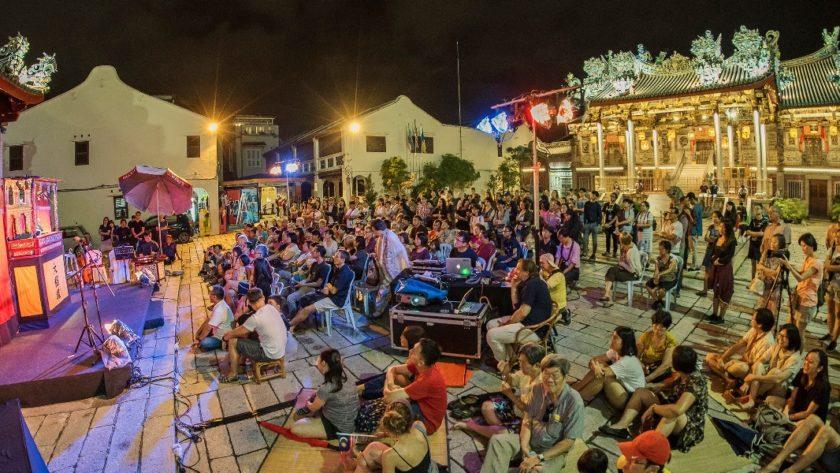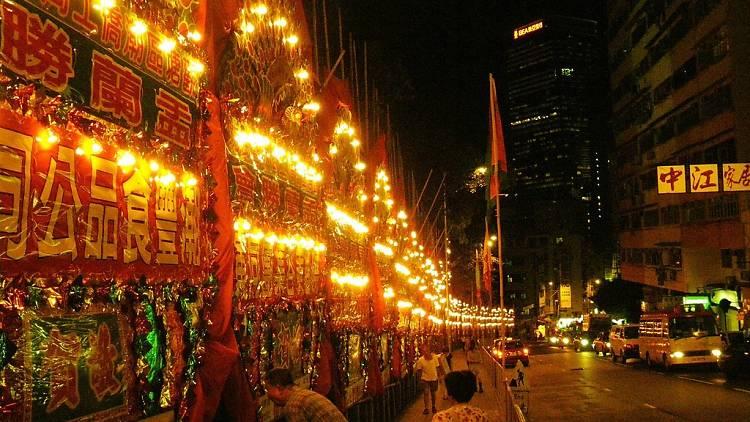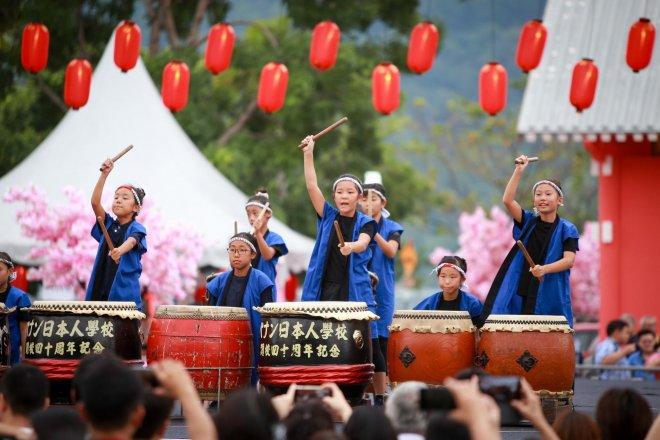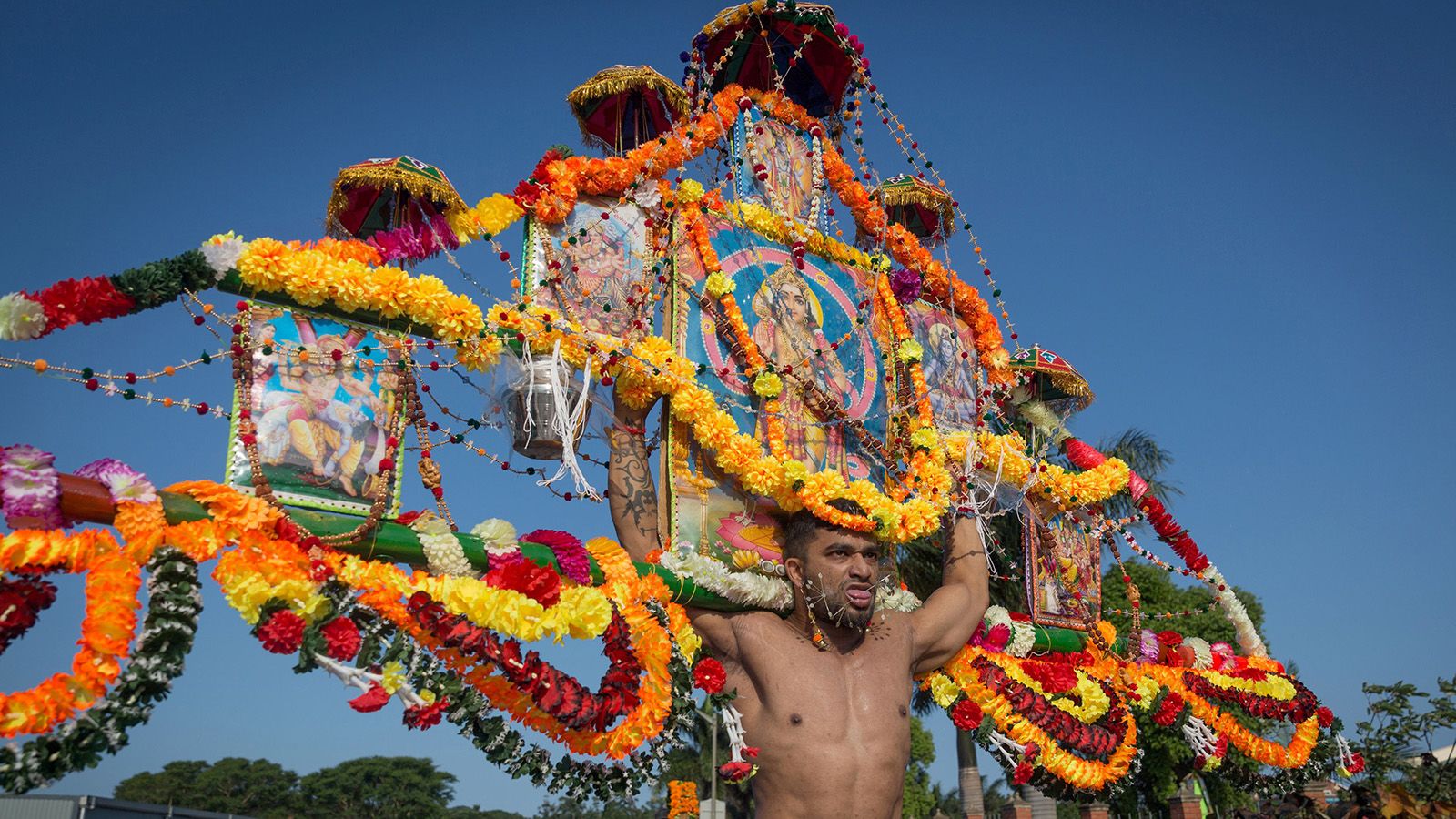As probably one of the most underrated hidden gems in South East Asia, Penang has earned quite a remarkable reputation for itself when it comes to wonderful cultural diversity. Travelers who have been to the Pearl of the Orient can, without a shred of hesitation, testify for this upon witnessing and immersing themselves in the many vibrant cultural celebrations and colourful festivals in Penang. It doesn’t matter which month of the year you’re visiting, there are bound to be exciting events taking place in Penang.
The George Town Festival
This article will be highlighting 7 out of the many exhilarating events in Penang as a quick guide for you if you are planning a trip there, so that you will get a quick glimpse of what is happening in Penang for the rest of the year and what are the upcoming events in Penang that you could include in your itinerary.The George Town Festival is an annual month-long celebration of arts, culture, and heritage held in the historic city of George Town, Penang. This festival has gained international recognition and has become one of Malaysia’s premier arts and cultural events. Let’s explore the vibrant world of the George Town Festival!
The George Town Festival showcases a diverse range of artistic disciplines, including music, dance, theater, visual arts, film, and literature. It brings together local, national, and international artists to create a vibrant cultural tapestry that reflects the rich heritage and contemporary creativity of the city.

One of the highlights of the festival is the George Town Heritage Celebrations, which pays tribute to the city’s UNESCO World Heritage status. During this time, the streets of George Town come alive with performances, exhibitions, and cultural activities that celebrate the unique heritage and multiculturalism of the city. Visitors can witness traditional performances, explore art installations, participate in workshops, and indulge in the flavors of Penang’s diverse culinary scene.
The festival also features an impressive lineup of music and dance performances, ranging from traditional to contemporary. Local and international musicians take the stage, captivating audiences with their melodies and rhythms. Dance troupes showcase their artistry through captivating performances that span various genres and styles.
Visual arts play a significant role in the George Town Festival, with exhibitions and installations held in various venues across the city. Art galleries, heritage buildings, and public spaces are transformed into creative hubs where visitors can explore the works of both established and emerging artists. The festival provides a platform for artists to express their creativity and engage with the audience through thought-provoking exhibitions and interactive installations.
Film enthusiasts can enjoy screenings of both local and international films, including documentaries, independent films, and classic movies. The festival often hosts film premieres, screenings, and discussions, offering a platform for filmmakers and cinephiles to connect and engage in meaningful conversations.
Literature also takes center stage during the festival, with literary events, book launches, and readings by renowned authors. Writers, poets, and literary enthusiasts come together to celebrate the written word and explore the power of storytelling.
The George Town Festival not only showcases the city’s vibrant arts scene but also fosters community engagement and promotes cultural exchange. It attracts visitors from around the world who are passionate about arts and culture, providing a platform for artists and audiences to connect and create memorable experiences.
Whether you are an art lover, a music enthusiast, or simply someone eager to immerse yourself in the cultural richness of George Town, the George Town Festival offers a wonderful opportunity to experience the city’s creative spirit and celebrate its heritage.
The Hungry Ghost Festival
The Hungry Ghost Festival, also known as the Ghost Month, is a traditional Chinese festival that takes place on the 15th day of the seventh lunar month. This festival is widely celebrated in various Chinese communities around the world, including Malaysia, Singapore, Taiwan, and China. Let’s explore the significance and customs associated with the Hungry Ghost Festival.
According to Chinese belief, the gates of the underworld are opened during the seventh lunar month, allowing spirits and restless souls to roam the earth for a period of one month. The festival is held to honor and appease these wandering spirits and to ensure their well-being.
During the Hungry Ghost Festival, it is believed that the spirits are in search of food and entertainment. To fulfill their needs, people offer various offerings and perform rituals to show respect and provide for the spirits. Elaborate feasts, also known as “offering tables,” are prepared with an array of food, fruits, and other items. These offerings are placed on the streets, in front of homes, or at designated altars to attract and appease the hungry spirits.
In addition to the offerings, theatrical performances and Chinese opera shows are staged during the festival. These performances are believed to entertain and please the spirits. Traditional Chinese opera, puppet shows, and other forms of entertainment are performed in open spaces or on specially constructed stages.

Another significant aspect of the Hungry Ghost Festival is the burning of joss paper and other symbolic items. Joss paper, also known as “spirit money,” is burned as an offering to the spirits, symbolizing the transfer of wealth and good fortune to them in the afterlife. People also burn replicas of houses, cars, and other material possessions, believing that the spirits will receive them in the spirit world.
Throughout the month, you may also find people participating in various religious activities such as making and releasing floating lanterns or floating offerings on rivers or lakes. These acts are believed to guide and provide direction for the wandering spirits to return to the afterlife.
Additionally, during the Hungry Ghost Festival, some Chinese communities organize street processions or parades featuring colorful floats, lion dances, and other cultural performances. These processions are held to honor the deities, seek blessings, and to ward off evil spirits.
It’s important to note that customs and practices associated with the Hungry Ghost Festival may vary across different regions and communities. While the festival has religious and cultural significance, it is also a time for families to come together, pay respects to ancestors, and remember loved ones who have passed away.
The Hungry Ghost Festival is a fascinating and significant celebration that offers a glimpse into Chinese beliefs and traditions surrounding the afterlife and ancestor veneration. It showcases the deep cultural roots and the importance of filial piety within Chinese communities.
The Penang Bon Odori Festival
The Penang Bon Odori Festival is an annual event held in George Town, Penang, Malaysia, to celebrate and honor the Japanese Buddhist tradition of Bon Odori. This festival showcases a vibrant display of Japanese culture, featuring traditional dances, music, food, and various cultural activities. Let’s explore the significance and festivities of the Penang Bon Odori Festival.
Bon Odori is a Japanese Buddhist custom that pays homage to ancestors and welcomes the spirits of the departed back to the earthly realm for a brief period. It is believed that during this time, the spirits of ancestors revisit their families. The Bon Odori Festival originated in Japan and has since spread to various countries with significant Japanese communities, including Malaysia.
During the Penang Bon Odori Festival, the Esplanade field in George Town is transformed into a lively and colorful celebration. The festival typically takes place in the evening and attracts locals and tourists alike. Participants, both Japanese and non-Japanese, dress in traditional Japanese yukatas (light cotton kimono) and gather to participate in Bon Odori dances.
The main highlight of the festival is the Bon Odori dance itself. Large circular stages are set up, and participants form concentric circles around them. Traditional Japanese music, including drums and other instruments, is played to accompany the dances. The dances are relatively simple and repetitive, allowing everyone to participate, regardless of age or skill level. Visitors are often encouraged to join in the dances and follow the rhythmic movements led by experienced dancers.

Apart from the Bon Odori dance, the festival offers a wide range of Japanese cultural experiences. Food stalls serve a variety of delicious Japanese cuisine, including sushi, tempura, yakitori, and ramen. Visitors can indulge in these delectable treats while immersing themselves in the festive atmosphere. There are also stalls selling Japanese arts and crafts, traditional clothing, and souvenirs.
Throughout the festival, you can enjoy performances by local and international artists, including taiko drumming, traditional Japanese music, and martial arts demonstrations. Cultural workshops, such as tea ceremonies and origami (paper folding), are often available, giving participants an opportunity to learn and experience Japanese traditions firsthand.
The Penang Bon Odori Festival provides a unique opportunity for the local community and visitors to appreciate and celebrate Japanese culture in a lively and joyous atmosphere. It is a testament to the multicultural nature of Penang, where various cultural festivals are embraced and shared.
Attending the Penang Bon Odori Festival is a delightful experience for those interested in Japanese culture or those simply seeking a vibrant and festive celebration. It offers a wonderful opportunity to immerse yourself in the music, dance, and cuisine of Japan while enjoying the warm hospitality of Penang.
Nine Emperor Gods Festival
The Nine Emperor Gods Festival, also known as the Nine Emperor Gods Festival, is a significant Taoist celebration observed by the Chinese community in Malaysia, Singapore, and other Southeast Asian countries. This nine-day festival is dedicated to the worship of the Nine Emperor Gods, who are believed to be divine deities and protectors of the celestial realm. Let’s delve into the traditions and customs associated with the Nine Emperor Gods Festival.
The festival takes place during the ninth lunar month of the Chinese calendar, typically in October. It begins on the eve of the ninth lunar month and concludes on the ninth day. Devotees observe a period of strict vegetarianism, purifying their bodies and minds through abstinence from meat, alcohol, and other stimulants. This practice is believed to enhance spiritual well-being and cleanse one’s karma.
During the festival, devotees gather at Taoist temples, often situated near bodies of water such as rivers or the sea. The temples are adorned with colorful decorations and altars dedicated to the Nine Emperor Gods. The deities are believed to descend from the heavens to bless their devotees during this period.
The festival kicks off with an elaborate ritual to invoke the presence of the Nine Emperor Gods. This ritual includes the raising of a flag or a pole known as the “Jiǔhuáng Líng,” symbolizing the arrival of the deities. Devotees participate in processions, carrying deities on sedan chairs or palanquins through the streets, accompanied by music and lion dances.

Throughout the nine days, devotees engage in acts of worship and seek blessings from the Nine Emperor Gods. This includes making offerings of vegetarian food, fruits, incense, and candles at the temple altars. Ritual ceremonies, including chanting, prayers, and performances of Taoist martial arts, are conducted to honor and show reverence to the deities.
Another distinctive feature of the festival is the “Piercing of the Cheek” ritual. Devotees, in a state of trance and under the influence of the Nine Emperor Gods, pierce their cheeks, tongues, or other parts of their bodies with sharp objects such as spears or skewers. This act is believed to demonstrate their devotion and spiritual connection with the deities.
The Nine Emperor Gods Festival also embraces a sense of community and generosity. Devotees and temple committees organize vegetarian feasts, known as “Kew Ong Yeah” or “Kow Wong Yeh,” where free vegetarian meals are served to the public. These communal meals are seen as acts of charity and are open to everyone, irrespective of religious beliefs.
On the final day of the festival, devotees bid farewell to the Nine Emperor Gods. A grand procession is held, often involving elaborate floats, dragon dances, and firecrackers, as the deities are ceremoniously returned to the sea or rivers, symbolizing their journey back to the heavenly realm.
The Nine Emperor Gods Festival is a captivating cultural event that blends religious devotion, community spirit, and a celebration of vegetarianism. It offers a unique insight into Taoist beliefs and practices and provides an opportunity for both participants and spectators to witness the rich traditions and vibrant festivities of the Chinese community.
The Penang International Dragon Boat Festival
The Penang International Dragon Boat Festival is an annual event held in Penang, Malaysia. Dragon boat racing is a popular water sport that originated in China and has since gained popularity around the world. The festival in Penang attracts teams from various countries who come together to compete in thrilling dragon boat races.
During the festival, participants paddle in long, narrow boats adorned with dragon heads and tails, following the rhythmic beat of a drum. The races are held in a body of water, such as a river or a lake, and teams compete against each other to reach the finish line in the fastest time. The atmosphere is filled with excitement as spectators cheer on their favorite teams and enjoy the spectacle.

In addition to the dragon boat races, the Penang International Dragon Boat Festival often features cultural performances, food stalls, and other entertainment activities. Visitors can experience the rich traditions and heritage of Penang while enjoying the festival’s festivities.
The festival typically takes place over a few days, allowing participants and spectators to immerse themselves in the spirit of dragon boat racing and enjoy the vibrant atmosphere. It is a significant event that promotes cultural exchange, sportsmanship, and community engagement.
Please note that as an AI, my information is based on the knowledge available up until September 2021. For the most accurate and up-to-date information about the Penang International Dragon Boat Festival, I recommend checking official sources or local event listings.
The Penang International Food Festival
The Penang International Food Festival is an annual culinary event held in Penang, Malaysia. Penang is renowned for its diverse and vibrant food scene, which blends Malaysian, Chinese, Indian, and other culinary traditions. The festival celebrates this rich gastronomic heritage by showcasing a wide array of local and international cuisines.
During the Penang International Food Festival, visitors have the opportunity to indulge in a wide variety of food and beverage offerings. The festival typically features food stalls, pop-up restaurants, cooking demonstrations, workshops, and food-related exhibitions. Renowned chefs, both local and international, often participate in the event, sharing their expertise and presenting unique culinary creations.

The festival aims to promote Penang as a food paradise and highlight its unique food culture. It provides a platform for local food businesses to showcase their specialties and attracts food enthusiasts from around the world. Whether it’s street food, traditional dishes, fusion cuisine, or innovative culinary creations, visitors can experience the flavors and aromas that make Penang’s food scene so distinctive.
The Penang International Food Festival typically spans several days or weeks, allowing attendees ample time to explore the diverse range of culinary offerings. It’s a fantastic opportunity to sample a variety of delicious dishes, interact with chefs, and immerse oneself in Penang’s vibrant food culture.
Since my knowledge cutoff is in September 2021, please note that specific details about upcoming festivals or any changes to the event may not be reflected in my response. For the most accurate and up-to-date information, I recommend checking official sources or local event listings for the Penang International Food Festival.
Thaipusam
Thaipusam is a significant Hindu festival celebrated primarily by the Tamil community in Malaysia, Singapore, and other parts of the world. It usually falls in the Tamil month of Thai, which is around January or February. Thaipusam commemorates the victory of Lord Murugan (also known as Subramanian), the Hindu god of war, over evil forces.
During Thaipusam, devotees undertake a pilgrimage to temples dedicated to Lord Murugan, with the Batu Caves in Malaysia being one of the most renowned locations for the festival. The festival involves a procession where devotees carry kavadi, which are ornate structures decorated with peacock feathers, flowers, and other embellishments. These kavadi are affixed to the bodies of the devotees using hooks and piercings as acts of penance and devotion.
Devotees participating in Thaipusam often observe strict fasting and engage in prayer and meditation in the days leading up to the festival. On the day of Thaipusam, they make the journey to the temple, often walking long distances. Some devotees may perform acts of self-mortification, such as piercing their tongues, cheeks, or bodies with skewers or carrying pots of milk as offerings.
The atmosphere during Thaipusam is filled with devotion, religious chants, and the beating of traditional drums. It is also common to witness devotees in a trance-like state, believed to be under the influence of the deity. The festival attracts a large number of devotees and spectators who come to witness the colorful processions and partake in the festive atmosphere.
Thaipusam is not only a religious event but also an important cultural celebration that showcases the Tamil community’s rich heritage and traditions. It provides an opportunity for people of different backgrounds to learn about and appreciate Hindu customs and practices.
Please note that while I strive to provide accurate and up-to-date information, cultural practices and specific details of festivals may vary over time and across different regions. Therefore, it is always a good idea to refer to local sources or community organizations for the most precise information about Thaipusam celebrations in a particular location.

